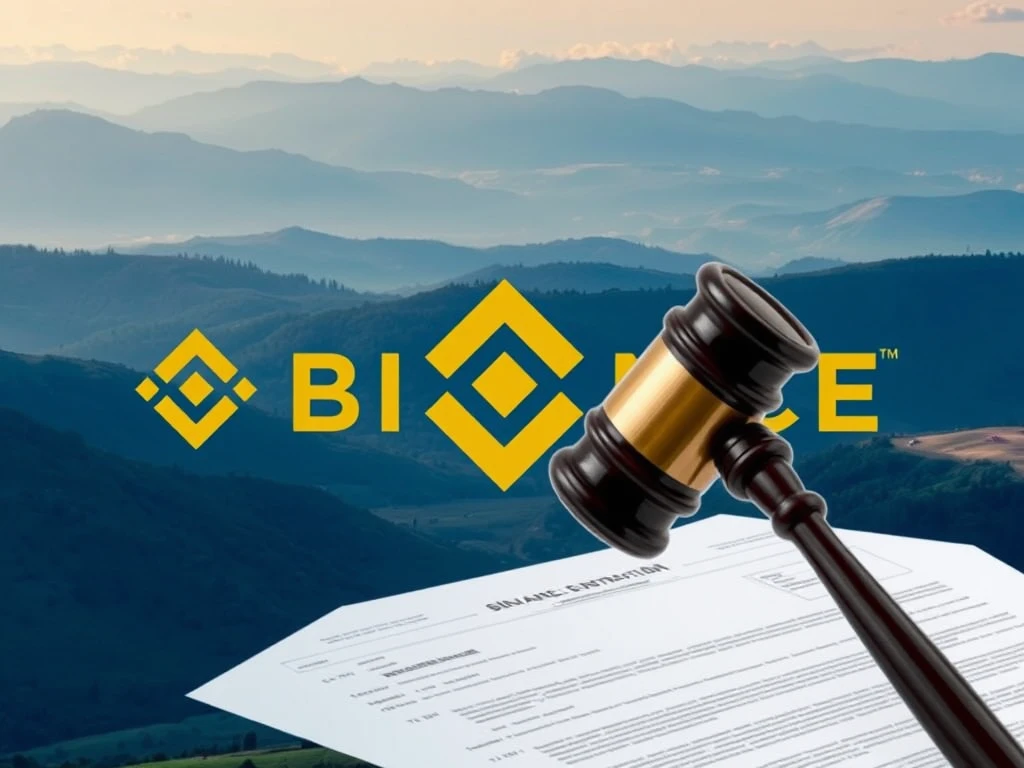Binance Arbitration: Bold Move in Securities Class Action Lawsuit

A significant legal maneuver is underway involving one of the world’s largest crypto exchanges. Binance is making a bold push for Binance arbitration in a ongoing securities class action lawsuit. This action could dramatically alter the course of the legal battle, potentially shifting proceedings from a public courtroom to private arbitration, based on the company’s user agreements.
Binance Terms of Service at the Center of the Dispute
Binance has filed a request with a US federal judge, asking that all participants in a class-action lawsuit be compelled to enter arbitration. The core of Binance’s argument rests on its Binance terms of service. The exchange claims that users, by agreeing to these terms, waived their right to file lawsuits in court and specifically waived their ability to participate in class actions against the company.
The terms of service allegedly contain specific clauses requiring users to arbitrate all claims. Furthermore, they include a waiver preventing users from initiating or joining class-action proceedings.
Navigating the Binance Lawsuit Timeline
This latest filing is part of a complex and evolving Binance lawsuit timeline. In March, the presiding judge, Andrew Carter, had previously denied Binance’s request to send all claims to arbitration. This denial specifically applied to users who purchased tokens on the platform between April 1, 2017, and February 20, 2019. For claims arising after February 2019, the judge’s decision was partial, pending further clarification on the applicability of the arbitration clause.
Binance’s current filing focuses heavily on the terms of service updated in February 2019, which included the arbitration clause. The exchange argues that even an earlier version of its terms included a provision stating Binance could amend the terms without individual notice, suggesting users were bound by the subsequent updates.
Context: Related Crypto Class Action and Legal Battles
This specific case is just one piece of Binance’s broader legal challenges in the United States and elsewhere. A previous version of this lawsuit was initially dismissed by Judge Carter in March 2022, with Binance arguing it wasn’t subject to US securities laws due to lacking a physical US headquarters. However, the US Court of Appeals for the Second Circuit overturned that dismissal in March 2024, allowing the case to proceed. The Supreme Court later declined to hear Binance’s appeal on this matter in January 2024.
Beyond this crypto class action, Binance faced a significant lawsuit from the Securities and Exchange Commission (SEC) alleging the sale of unregistered securities. That case was settled for $4.3 billion in November 2023. Additionally, Binance is facing a class action in Canada, filed in April 2024, related to alleged securities law violations following the exchange’s departure from the country in May 2023.
Understanding the Implications of a Securities Class Action in Arbitration
For users involved in this securities class action, Binance’s push for arbitration is a critical development. Arbitration is a private dispute resolution process outside of court. If successful, it would mean individual or small-group arbitration proceedings rather than a single, large class action lawsuit. Binance argues this is what users agreed to when using the platform under the updated terms.
This legal strategy highlights the importance of understanding the terms and conditions users agree to when using cryptocurrency exchanges. Arbitration clauses and class action waivers are common features in many online service agreements, and their enforceability is often tested in situations like this.
Summary
Binance is actively seeking to compel arbitration for all members of a crypto class action lawsuit alleging the sale of unregistered securities. The exchange contends that its Binance terms of service require users to arbitrate claims and waive their right to participate in class actions, particularly for claims arising after February 2019. This legal move comes amidst other significant legal challenges for Binance, including past SEC action and ongoing lawsuits. The court’s decision on this arbitration request will be a key factor in determining how this Binance lawsuit proceeds and could set precedents regarding user agreements and legal recourse in the crypto space.









